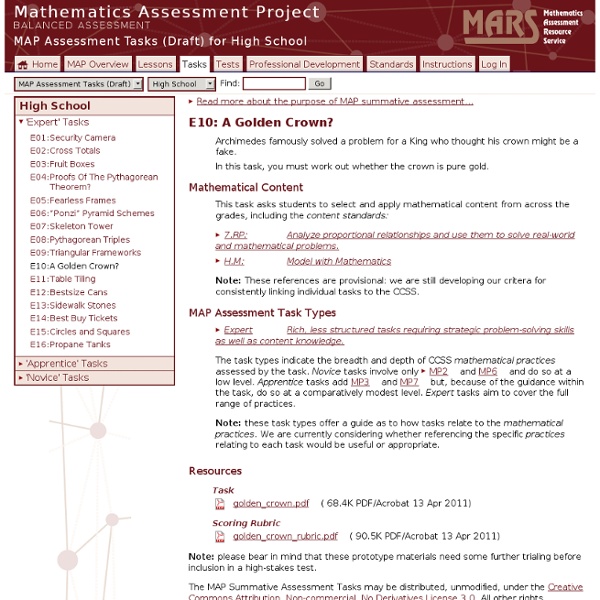



Inside Math: Problems of the Month Problem solving is the cornerstone of doing mathematics. A problem that you can’t solve in less than a day is usually a problem that is similar to one that you have solved before. But in real life, a problem is a situation that confronts you and you don’t have an idea of where to even start. If we want our students to be problem solvers and mathematically powerful, we must model perseverance and challenge students with non-routine problems. Administrators, teachers and parents should facilitate and support students in the process of attacking and reasoning about the problems. The solution is not as important as the process of problem solving. The educator or parent should not be impatient with the student’s struggle. The principal should embrace the concept of problem solving and model problem-solving leadership, being a facilitator of non-routine problems. Once the problem is presented to the students, the principal should be visible in facilitating the tasks alongside the teachers.
Dan Meyer Dave Sladkey Her Mathness So what actually happened in The Class that Nobody Wanted? Encouraged by how intrigued the students were by the Illustrative Mathematics composite figures task on the first day, I decided to continue with the activity the following day, allowing the students to self-select groups. I created a worksheet to give them more workspace, and brought in the group whiteboards – always a hit. The level of engagement in the room was complete and palpable. I met with my mentor later, and through our discussion realized that the challenge for me was to keep these students motivated with accessible, engaging and respectful tasks. So I am faced with the task of managing this class effectively, with the end goal of imparting some mathematical learning and appreciation to these students, while simultaneously demonstrating to the administration that this cohort could and should learn geometry. On Friday, I knew I needed some hard data on the ability of each student.
4 Steps to Create Math Performance Tasks Finding math performance tasks for your classroom can be difficult. And even when a performance task is found it does not match up with your needs.One solution is to create your own. This template will save you time and effort. Step 1: Get an Idea This may be the most difficult part of the task or the most fun. For example, I noticed today that my students found the domino example for π day intriguing. Step 2: Clarify the Performance Task Within the template you will find prompts ensuring your task is complete. Choose a product for your students. Take a minute and check off the Mathematical Practices your task will include. Remember to think through the goals for your students. Step 3: Prepare for Success Prerequisite Skills Being realistic about what your students know and need to know is essential. Quality Questions Think through your task. What questions will you ask students to assess their knowledge of the content? What questions can you ask struggling students to help them find their way?
Algebra Tasks by Howard County Public Schools Balanced Assessment by Harvard Worksheets Technology Ideas